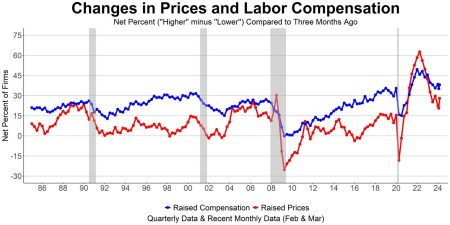Allison Arzeno, the CEO of Assurance IQ, is dedicated to making insurance more accessible and easier to understand for consumers. She recognizes that income volatility is a major barrier to financial stability for many Americans, especially those working in the gig economy or in part-time positions. The fluctuating schedules and reduced hours that often come with these types of work can make it challenging for individuals to plan and budget effectively.
Research conducted by the U.S. Financial Diaries in 2013 highlighted the impact of income volatility on financial stability. The study showed that volatile incomes made it difficult for participants to save money, with many prioritizing “financial stability” over increasing their income. A recent financial well-being study conducted by Arzeno’s company found that a significant number of Americans believe their finances will become less predictable in the next three years, particularly those earning less than $75,000.
Income uncertainty can lead individuals to make tradeoffs to pay monthly bills, such as borrowing money, paying bills late, or skipping meals. These tradeoffs can have long-term consequences, such as incurring expensive fees or falling behind on payments. Additionally, economic instability caused by income volatility can contribute to a cycle of poverty for many Americans, as disruptions in employment and income can make it challenging to escape financial hardship.
Insurance can be a valuable tool for mitigating the impact of income uncertainty on financial stability. Life insurance, in particular, can provide valuable support by replacing income, covering caregiving costs, and paying outstanding debts or funeral bills. However, many lower-income consumers struggle to choose a health plan that meets their needs, particularly those who shop on exchanges where numerous plan options are available.
Insurers can play a role in supporting financial stability by offering more personalized guidance on their products using modern technology. Machine learning tools can help analyze insurance policies and narrow down options for consumers, while licensed agents can provide further guidance on tradeoffs across plans. Insurers can also consider offering flexible payment options, coverage flexibility based on payment ability, and faster claims processing to better serve individuals with volatile incomes.
Innovations in financial services are needed to better support Americans with fluctuating incomes. Flexible payment solutions, personalized payment terms, and income-driven repayment plans are just a few examples of how the financial services industry can adapt to meet the needs of individuals with unpredictable earnings. As the financial landscape continues to evolve, there is an opportunity for growth and innovation in financial protection tools for those willing to seize it.















